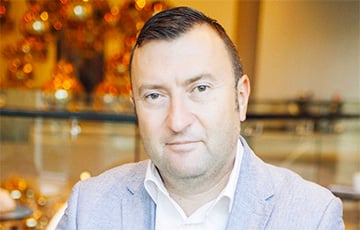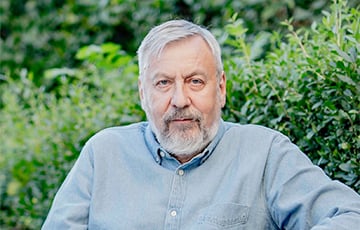Putin's Russia is weak
3- 12.11.2024, 12:58
- 13,820

Only bluff and bravado.
In 1983, Princeton University professor Stephen Cohen called the Soviet system surprisingly stable. Even the US Central Intelligence Agency overestimated the internal stability of the Soviet Union and did not expect its rapid collapse. Former CIA Director Stansfield Turner wrote in 1991 in the American journal Foreign Relations, “We must not be silent about the enormity of our inability to predict the extent of the Soviet crisis.”
Now it seems to many in the West that the Putin regime has a large margin of safety. They make the same mistake. The Putin regime has many weaknesses, and it is not the Achilles' heel, but rather another part of the body, much larger.
Here's my top four.
Ideology
It simply does not exist. There is a strange, unnatural and rather perverse mixture of Orthodoxy, Stalinism, anti-Americanism, militarism, Sovietism, monarchy, Polovtsian and victory euphory — the contents of a gastric eruption, which PR and propagandists for money are struggling to homogenize and present as an ideology. But their efforts are not that successful, since everything looks fake and unnatural: glossy victory, aggressive-bloodthirsty Orthodoxy, and Stalinism requires a fair makeup so that the ghoul does not overlook — and still it is not possible to hide the innocent death of millions of Soviet people, Russians.
All this panopticon of ideas should create a facade behind which the only ideology of the Putin regime is hiding: money. He and another 1,000 people plunder their country on a large scale and pay for the support and loyalty of 100,000 smaller slaves, who are shared with another 10 million. Everyone else should be silent and beg.
Greed and corruption are not an ideology, but a political system devoid of ideology, extremely unstable. Money (yachts, planes, palaces) does not solve all the problems in the world.
And that brings us to the most vulnerable point of the regime.
No one likes Putin for free
Nobody! Kadyrov? He has a great money income from the federal center, but as soon as this income is over, he will remember the Chechen dream of independence.
Lukashenka? He is an outstanding master of milking the Big Brother. But as soon as there is nothing to milk, Belarus will suddenly remember about its independence and Europeanness, and the "union state" of Russia and Belarus will simply not be a very successful experience, and even imposed from Moscow.
Simonyan, Kiselev, Solovyov? So they work only for money, they are just highly paid and immoral actors.
The FSB, the military, judges, United Russia — they all need money in the form of salaries and rent, that is, the ability to steal, and as long as Putin provides them with all this — they are loyal. But as soon as the money is gone...
Orban also for the money. And we don't know everything yet.
China? Yes, we can assume that Beijing and Moscow have a common platform of anti-Americanism. But it is China that is the main beneficiary of Russia's economic and political isolation. Friendship? Let's call it that, but it's also for the money.
Iran and North Korea, Russia's new friends, supply weapons and now even soldiers. But also for the money.
Russians in large numbers are enlisting in the army to kill Ukrainians. But, for money, and the price is constantly growing.
The main source of Putin's money is oil, and its price is determined by the market. And this poses a gigantic danger to the regime.
The image of a strong leader has suffered
A weak (physically or mentally) person tries to join the strong. A strong one will protect him. Strong is safe. It's easy to be strong with the strong.
Obey the strong, get on your knees, and everything will be fine. No one will harm you.
This logic is gangster-like, it is accepted in Russia, and it played a big role in glorifying Putin. “He will protect us from the banditry of the 1990s! He will protect us from enemies, although they are designed specifically for this. He will make it hot for everyone. He will raise the army. Putin is strong, everyone reckons with him, everyone trembles." That's the idea.
But the image of the boss requires a constant demonstration of strength and invulnerability. Putin showed vulnerability: he could not protect the Kursk region, he cannot squeeze Ukrainians out of it. Putin cannot protect Belgorod.
2.5 million people live in the Kursk and Belgorod regions — and almost 250,000 of them have lost their homes. They are entitled to compensation of 15,000 rubles — compare it with the millions that those who sign a contract and join the army receive.
Putin cannot protect Russian refineries and airports. Even military warehouses are defenseless. Putin's great army did not take Kyiv in three days. She has been dying en masse for three years. Yes, now it is squeezing Ukrainians in the Donbas. But she begs: Iranian drones and missiles, North Korean shells and missiles, now even North Korean soldiers!
The Black Sea Fleet, or rather what is left of it, shamefully left Sevastopol, and is now looking for where to relocate from Novorossiysk.
And the terrible 1990s are gradually returning. The participants of the SVO (so-called Special Military Operation) at home will kill, rape, and rob someone every day. I can't forget the shooting in the office 300 meters from the Kremlin, when two people were killed by armed men in the presence of the police.
Propaganda tries, but the people cannot help but see that Putin is weak and certainly does not protect his citizens. His environment also sees weakness. They know about it in Iran, China, etc.
The image of a weakling is extremely dangerous for a dictator — another big vulnerability.
Economics
Everything is fine on the surface. It even seems to many that Russia has not suffered much from the sanctions, that they do not work very well. But this is not the case. Not at all like that.
The Russian economy is degrading. Do you want to pay for the import? Gray, of course, what else! No problem. Exchange rubles for tenge, tenge for yuan, yuan for euros — and increase the payment by 30–50%. Great!
Do you need workers? No problem. It is only necessary to surpass the money offers of the authorities who buy cannon fodder for the front, and the salary promises of the military industry — shells and tanks are funded generously and in the first place. Yes, and about 600,000, or maybe a million, left altogether and did not return, and these were the best workers.
And they were also scientists, entrepreneurs, writers, artists. They did not want to live in a fascist country, it was somehow morally uncomfortable.
Where is Gazprom's national treasure? In a deep hole. And Rosneft? He is trying to absorb effective competitors Gazprom Neft and Lukoil. Igor Sechin is passionate about covering losses through absorption. He also asked Prime Minister Mishustin to support the oil workers.
Coal industry? In 2024, the share of unprofitable coal enterprises in Russia was 52%, and the total profit of the companies fell by almost 15 times.
Want some software? But you can't, sanctions.
Spare parts? Through Kyrgyzstan and Armenia, but it is slow, difficult, and expensive. Add inflation — the Central Bank of the Russian Federation has already raised the key rate to 21% per annum in an attempt to curb it, and this is not the limit: Putin floods the war and death of Russians with money that disperses inflation.
***
What is all this supposed to tell us?
The most important thing is to understand that the aggressive-serious face of Lavrov or the hypocritical-confident behavior of Putin is one huge bluff. They want to speak from a position of strength — but behind them is an extremely unstable car, in which something knocks suspiciously, pungently smokes, drips somewhere or even flows. Therefore, we have to use nuclear blackmail.
The system still looks working, but the example of the USSR should remind us how easily the system can unbalance and what rapid destruction it will lead to. The end will come much faster than we can imagine.
Petr Zashev, The Moscow Times











